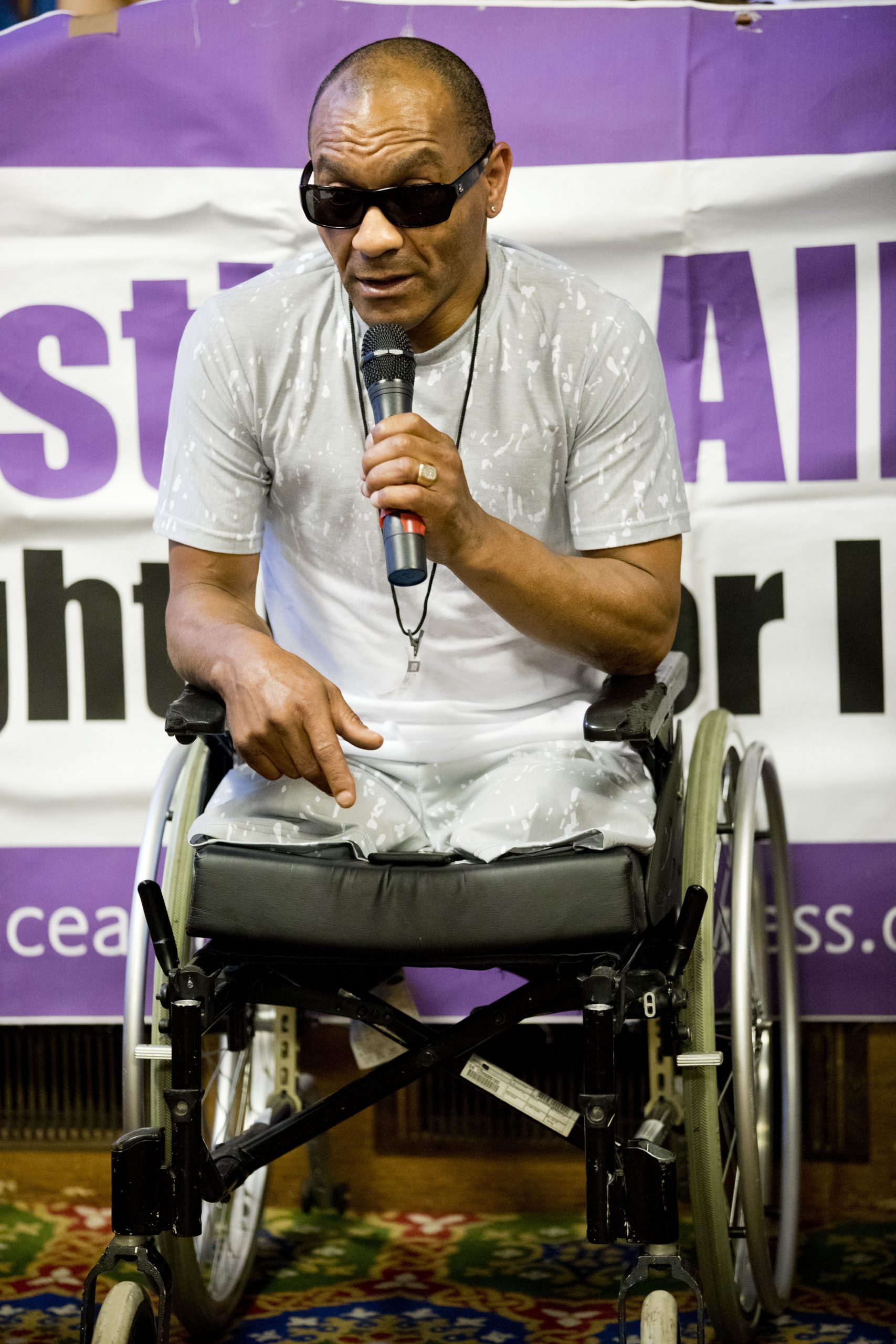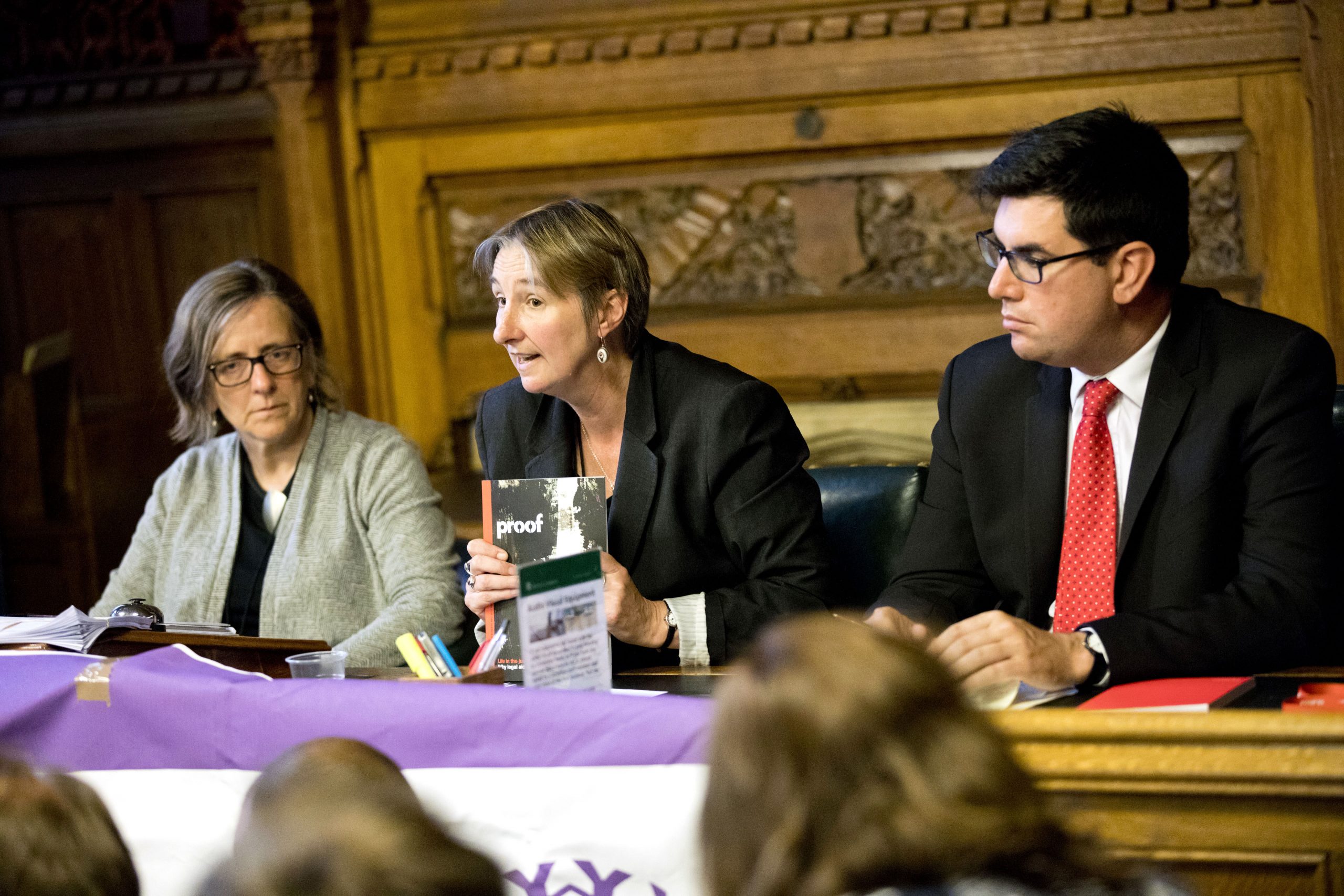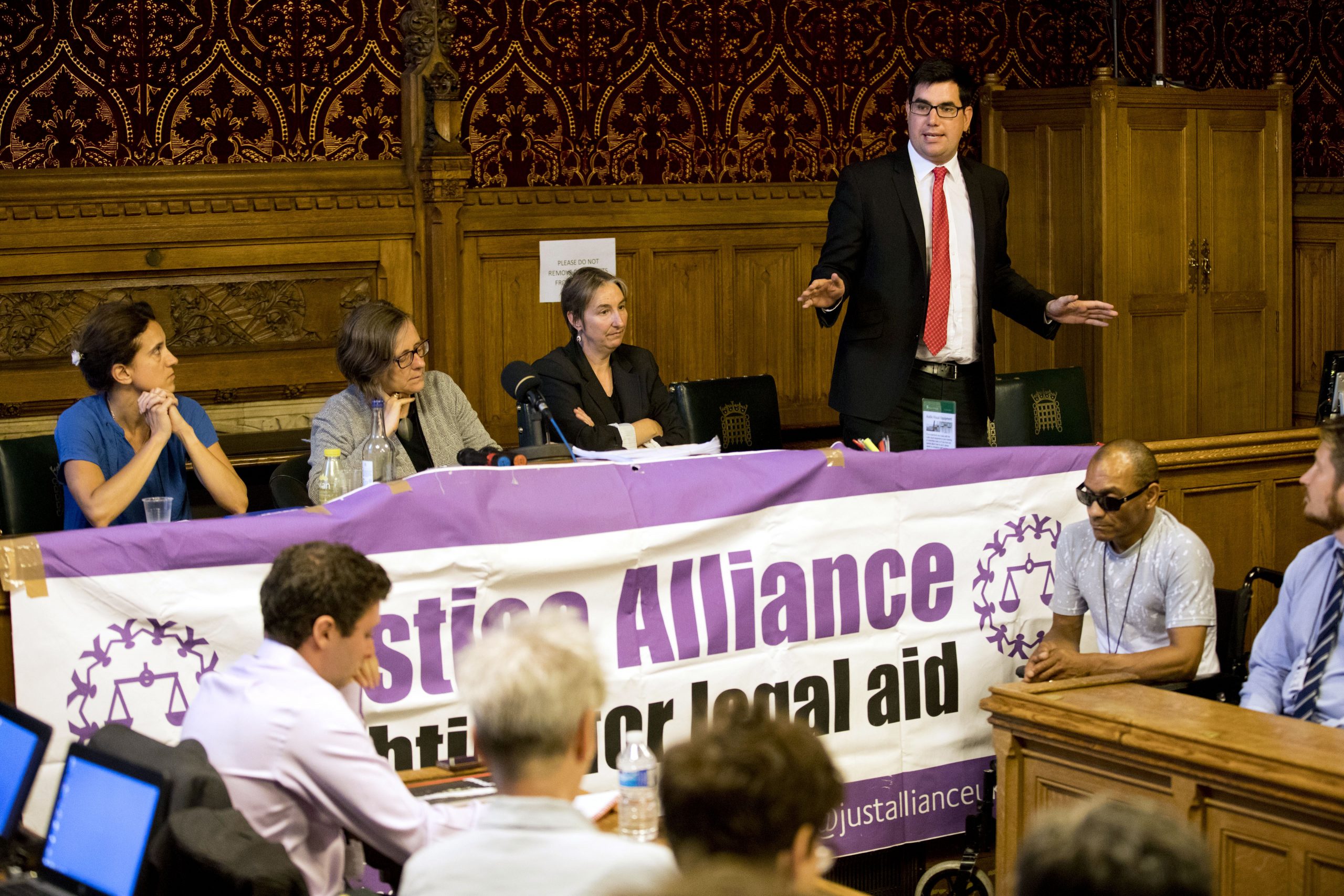Access to justice campaigners yesterday called on the government to start an immediate review of the 2013 legal aid cuts at a meeting of the House of Commons yesterday. Speaking at the launch of the third issue of Proof magazine, Matt Foot, co-founder of the Justice Alliance, said that for four years the group had been calling on the government to conduct a proper review. ‘They won’t do it so we’ve done it for them. Proof magazine is the review that the Government has shamefully failed to do,’ he told the audience.
 You can now order the latest issue of Proof Life in the Justice Gap: Why legal aid matters HERE.
You can now order the latest issue of Proof Life in the Justice Gap: Why legal aid matters HERE.
Proof is the magazine of the Justice Gap. The magazine features contributions from Helena Kennedy QC, Martha Spurrier, Lord Tony Gifford QC as well as journalists including the Guardian’s David Conn and Rebecca Omonira-Oyekanmi who has written an extended article reporting from the frontline of the legal aid cuts. The cover and Rebecca’s article is illustrated by the award-winning artist Simon Pemberton.
A panel of speakers at yesterday’s launch, chaired by Ruth Hayes from Unite the Union and director of Islington Law Centre, joined calls for the promised LASPO review. ‘Legal aid should be viewed as one of the four pillars of the welfare state,’ said shadow justice secretary Richard Burgon MP.
‘Proof magazine says that law and justice are two different things. That is an important point to make,’ the MP continued. ‘The barriers to access to justice means that justice is denied to millions of people across our country.’ The former union employment lawyer cited the impact of introduction of tribunal fees in July 2013. ‘People need to get real about the barriers in the way of access to justice. People say, surely the Conservative government must abolish tribunal fees because the House of Commons’ justice select committee report has come out saying claims have been reduced by 80%? But, no, that is what they were for. Tribunal fees were introduced to be unfair. They were introduced to rob people of access to justice, to give a green light to bad and unscrupulous employers. The fact that claims have been reduced just shows that the government has succeeded.’
Burgon continued: ‘We have to understand that access to justice is a battle between different visions of how society is.’ The MP said that a Labour government would secure ‘a smaller gap between the law and justice’.
Referring to reports that residents of Grenfell Tower were unable to bring their concerns about building safety to court, he suggested that it is ‘not good enough to have assistance after a tragedy if you can’t have it before.’
Describing the magazine as an attempt to ‘make the invisible visible’, the president of the London Criminal Courts Solicitors’ Association, Greg Powell pointed out the ‘paradox’ between government assurances of a commitment to ‘access to justice’ and their actions. He argued that successive ministers for justice have accepted ‘the poisoned embrace of the Treasury’, leaving legal aid in ‘unremitting’ decline. ‘If you’re the DUP,’ Powell said, ‘the government has the money. If you’re one of the millions of people who needs access to justice, then it doesn’t.’

Fit to work? Julius Holgate at Justice Alliance/ Justice Gap launch of Proof Magazine © Jess Hurd/reportdigital.co.uk
Julius Holgate spoke about his experience at the hands of the Department for Work and Pensions. His case received attention in the national press after being denied Employment Support Allowance when the DWP claimed that he was fit to work despite being a double amputee with no legs. The decision was overturned in February after Hackney Community Law Centre took on Julius’s case.
‘I had to pawn my jewellery because I had no money. I had to rely on my family for bits of spare change. It’s still hard for me to talk about it now. If it weren’t for the law centre, I don’t know where I’d be. We need to support the law centres more.’
Julius Holgate
Deborah Russo, joint managing solicitor at the Prisoner’s Advice Service, spoke about the impact of cuts made by the then Lord Chancellor Chris Grayling in 2013 to legal aid for prisoners. ‘It’s no surprise that incidents of violence and self-injury have risen to record levels,’ she said. She pointed out that 120 prisoners committed suicide in 2016, the largest number on record.
Whilst acknowledging a Court of Appeal victory in the legal challenge by PAS and the Howard League to cuts to legal aid for prisoners earlier this year, Russo expressed disappointment at the fact that ‘in practice, the government has appealed to the Supreme Court and pending their decision nothing can change. Sadly, prisoners are continuing to face the same justice system.’

Looking for Proof? Liz Davies at Justice Alliance/ Justice Gap launch of Proof Magazine © Jess Hurd/reportdigital.co.uk
Housing rights barrister, Liz Davies, argued that early access to legal advice was essential in order to avoid the ‘humiliating’ and ‘devastating’ consequences depicted in Rebecca Omonira-Oyekanmi’s article for Proof. Omonira-Oyekanmi reports on the impact of the LASPO cuts in an extended article which begins the issue. ‘What it brilliantly does is set out the human distress and the false economies of the legal aid cuts,’ she adds.
Davies flagged up increasing legal aid advice deserts. ‘There are no housing lawyers in Suffolk or Shropshire. There is only one Cornwall, Somerset and most of the different Welsh counties. It is now very difficult indeed to get legally aided housing advice.’ Davies warned: ‘There will come a time where there is legal aid in theory but no legal aid lawyers in practice.’ Davies said the Labour manifesto ‘didn’t go far enough’ and need to bring back legal aid for social welfare law in particular for welfare benefits. Burgon described the manifesto as a start and said that this party will be looking at implementing the independent review by Labour peer Lord Willy Bach which delivers its report in September.







